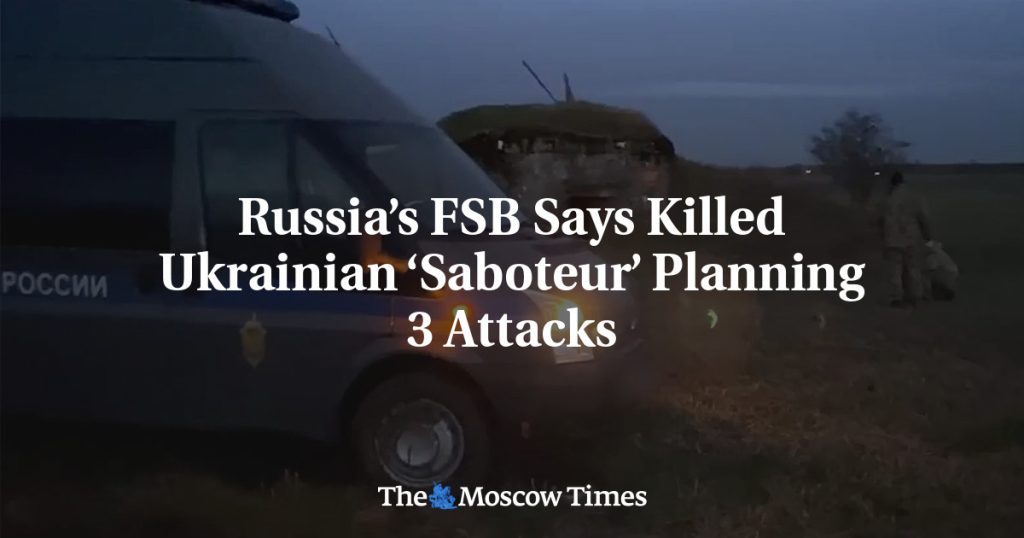Russia’s Federal Security Service (FSB) announced the killing of a Ukrainian military saboteur who was allegedly planning to carry out terrorist attacks on Russian military and energy facilities. According to TASS news agency, the saboteur was acting on orders from the Ukrainian Defense Ministry’s HUR and was targeting various locations in Russia, including defense ministry facilities and a volunteer center in St. Petersburg. The FSB released a video of the alleged agent, described as a slender blond man with glasses, and showed images of his dead body with a pistol next to him.
The FSB reported that the agent had received weapons and explosives training in Lithuania before arriving in Russia in March. He then eluded FSB agents in the Moscow region, where they attempted to arrest him, but failed when he shot back and escaped. He was later tracked down in the Leningrad region while trying to access weapons from a hidden storage site, where he was subsequently shot and killed. The FSB did not disclose any additional information about the agent aside from his birth year, which was stated to be 1976.
Russian investigators had charged the agent with illegal possession of explosives and premeditated sabotage prior to his death, according to the FSB. President Vladimir Putin had previously instructed Russian counterintelligence services to intensify efforts in locating “traitors, spies, and saboteurs” in December 2022. Since the conflict between Russia and Ukraine began, the Kremlin has positioned itself as a “besieged fortress” in a geopolitical confrontation with the West.
The FSB’s actions come in the context of heightened tensions between Russia and Ukraine, with the two countries engaged in a long-standing conflict since 2014. The FSB’s assertion of thwarting a potential terrorist attack by a Ukrainian agent underscores the ongoing security threats faced by Russia and its claims of being targets of western aggression. The killing of the alleged saboteur serves as a warning to other potential threats against Russian interests and a demonstration of the FSB’s capabilities in neutralizing such threats.
The incident also raises questions about the veracity of the FSB’s claims and the lack of transparency surrounding the operation. Without independent confirmation, the details provided by the FSB on the alleged agent’s activities and intentions remain unverified. The lack of specific identifying information about the agent, aside from his birth year, raises concerns about the legitimacy of the FSB’s actions and the possibility of misinformation being disseminated to justify their actions.
Overall, the killing of the Ukrainian military saboteur by the FSB highlights the complex dynamics at play in the conflict between Russia and Ukraine. The incident underscores the ongoing security challenges faced by Russia and its efforts to combat perceived threats to its national security. It also sheds light on the tactics employed by both sides in the conflict and the potential for further escalation in the region. The FSB’s actions, whether validated or not, contribute to the broader narrative of geopolitical tensions between Russia and the West and the ongoing struggle for power and influence in the region.


